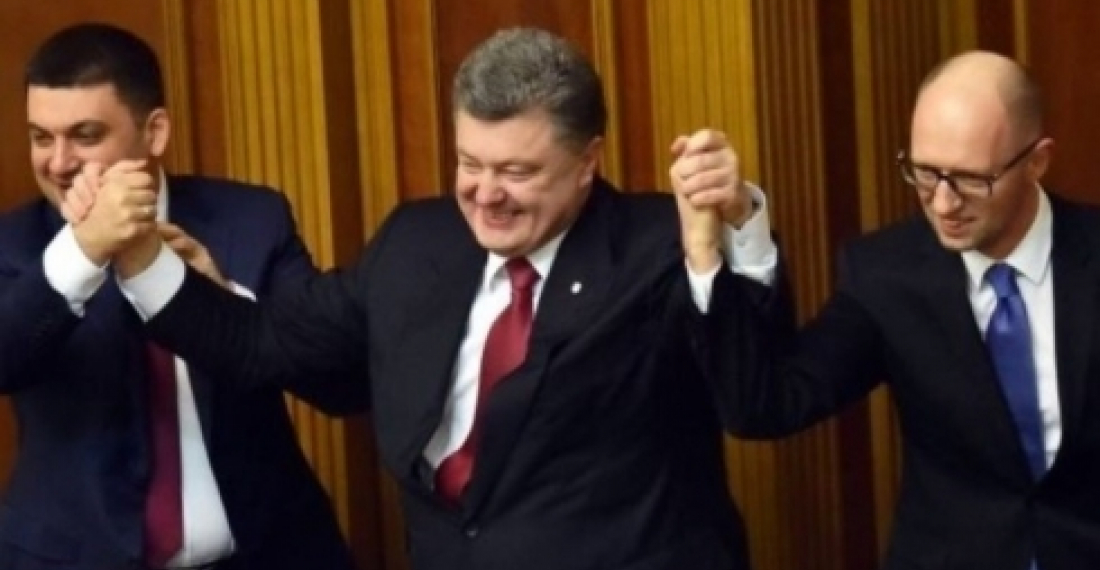Ukraine's political elite have sent a strong message to Russia that they are united in pursuing a pro-European course in their foreign policy, and in resisting Russian attempts to dismember their country, during a ceremony to mark the opening of the new Parliament following elections in October. The first session of the newly elected Parliament (The Rada) opened today in Kiev with an address by President Poroshenko. It also approved Arseny Yatseniuk for a new term as prime minister. Poroshenko and Artsenium will have to work together if they are to push through imnportant reforms that are needed to end Ukraine's chronic economic problems, as well as a culture of corruption in government.
In his speech President Poroshenko declared that there could be no other political system for Ukraine other than that of a single, unified state, dismissing suggestiuons of federalisation.
The President said the main challenges were the lack of reliable external security guarantees, total corruptness of the state apparatus and judicial system, unemployment, poverty and social injustice that will be definitely used by the enemy for the purpose of destabilizing the situation in Ukraine.
Two thirds of the deputies in the 450-seat parliament voted for Yatseniuk to stay as head of government, a post he has held since since the spring. There have been reports of disputes between Poroshenko and Yatseniuk over the share-out of portfolios in the new government which will be announced shortly. The display of unity in the Parliament however sent a clear sign that President and Prime Minister intended to work together in the face of the current threats from Russia.
Political parties in favour of closer links to the European Union scored a convincing victory in Parliamentary elections in October.
source: commonspace.eu
photo: President Poroshenko (centre) with new Rada Speaker Vlodymyr Grosman and Prime Minister Artseniuk at the opening of the new Parliament in Kiev on 27 November 2014.







